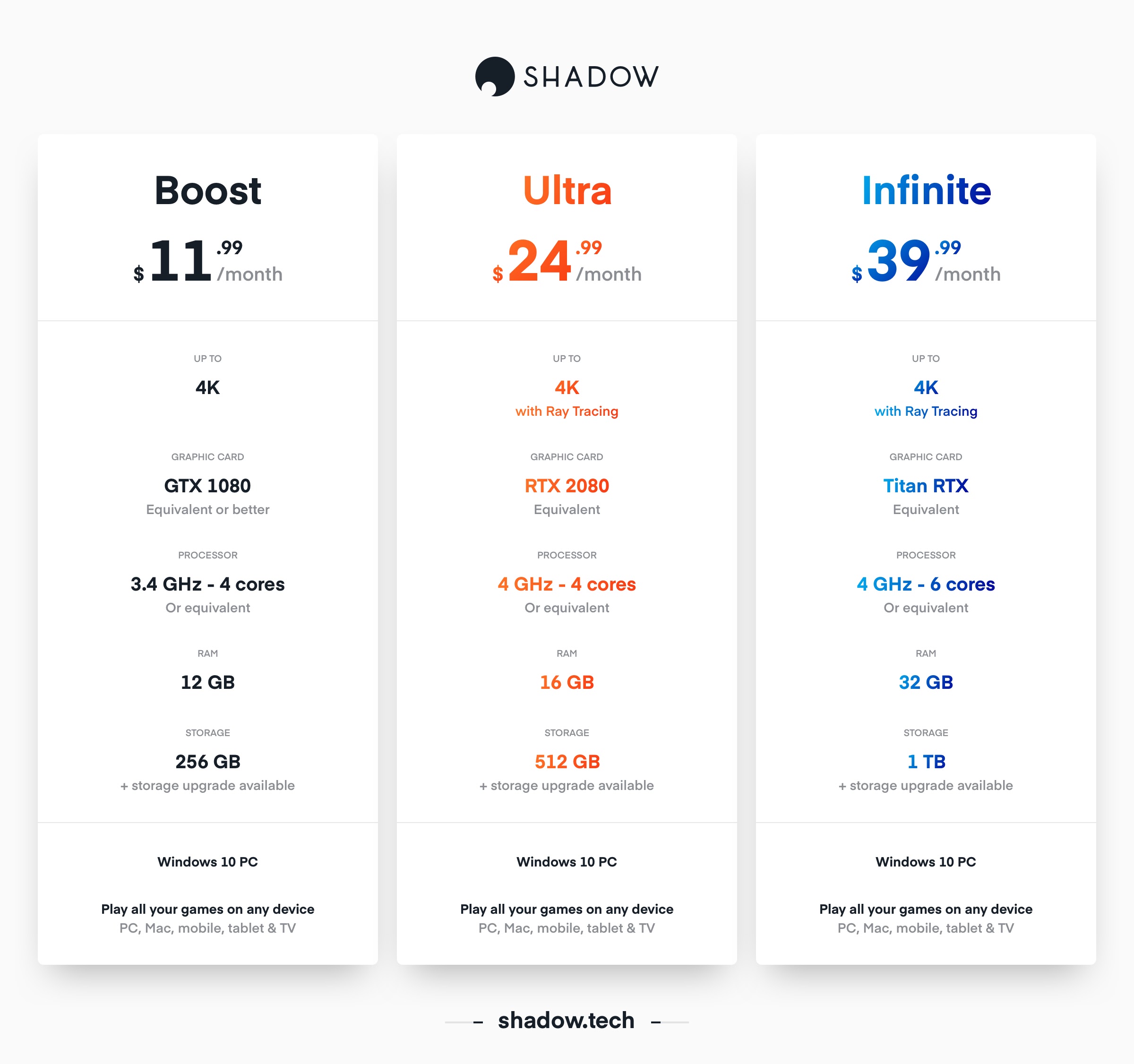YC-backed Legionfarm lets competitive gamers pay to play with pro coaches
Legionfarm, a YC-backed company, is looking to bring coaches to the competitive gaming world. Esports teams at the very top often have coaches, but the rest of the massive competitive gaming scene has to find a way to improve on their own, either via sheer time played or with creative new training platforms.
There is a huge demand for skilled teammates that can help you hone your skills, while at the same time, there is a broad community of near-pro gamers who haven’t landed a spot on an esports team and want to earn a living with their skills.
Legionfarm is a platform built to solve both problems.
The company was founded by Alex Belyankin, who is a former pro gamer and was once in the top .01 percent of World of Warcraft players.
Competitive gamers can sign up to become a coach on the platform, going through a process that looks at their stats within a particular title. Less than the top 0.1 percent are accepted as coaches and told how to manage sessions, including asking the customer’s goal at the beginning of the session.
On the other side, gamers can pay to play with one (or two) of these coaches in hour-long increments. Legionfarm allows users to specify if they want to play with two coaches, one coach and a friend, or one coach and another customer.
Users can also determine what kind of lobby they want to enter, such as a public or a ranked lobby.
Here’s how it works.
When a user buys a session on the website, they are given instructions to join a Discord bot, which puts them in game chat with the coaches and asks for their gamertag for that specific title. The coaches then invite the customer to a lobby, and fire up the match.
To be clear, Legionfarm coaches are not coming from the same pool of streamers and pro gamers we’ve come to know and cheer on in the esports world. Rather, Legionfarm seeks out the very best and most skilled amateur players based on the publisher’s rankings and stats to become coaches. These are people who otherwise aren’t making money via Twitch or a salary via an esports organization, but are still in the top 0.1 percent of gamers by skill.
In other words, Legionfarm is creating pro gamers, rather than hiring them.
The average cost of a session is $16/hour, with Legionfarm taking half of the revenue and the rest going to the coach.
Legionfarm currently offers nine titles to choose from, including Apex Legends, Fortnite, CoD: Modern Warfare 2019, League of Legends, and Destiny 2. The company has run more than 300,000 gaming sessions with its 7,000 coaches.
Legionfarm is currently available via the web and through a Facebook Messenger bot, with plans to launch an app soon. Founder and CEO Alex Belyankin also teased new functionality that would allow Twitch viewers to request a session with the streamer directly from the chat.
Legionfarm has raised a total of $1.7 million from TMT Investments and Y Combinator, and will present at Y Combinator’s upcoming demo day.
Powered by WPeMatico
Zume co-founder goes from pizza to climate-friendly food with $2.7 million in funding
Before leaving SoftBank-backed Zume Pizza in November 2018, co-founder Julia Collins knew what her next move would be: climate-friendly food. Today, Collins is announcing Planet FWD’s $2.7 million seed round led by BBG Ventures with participation from Cleo Capital, Cowboy Ventures, Precursor Ventures, Kapor Capital and others.
What’s unique about this round, Collins told TechCrunch, is that 99.5% of the funds came from people of color and/or women. That was deliberate, she said. What’s also deliberate is the startup’s mission to combat climate change by building a climate-friendly food platform and snack brand.
“For me, the question has always been, how can we reform our food systems so that they work better for people and work better for the planet?” Collins said. “That’s been the thread that has connected all of my work in food. It’s always been how can we change the existing infrastructure and the ways of doing business so that we create better outcomes.”
In 2017, Collins learned she was about to become a parent — something she hadn’t expected. That’s what led to, what she describes as, a sudden shift in consciousness where she realized she would soon become responsible for another human being.
“When I learned I was going to be a parent, I decided I was going to become a climatarian,” Collins said. “So that meant not just being a vegetarian or living a plant-based lifestyle, but wanting to live a planet-based lifestyle. So I went from being a plant-based eater to a climatarian. So I started thinking about how I could make food choices that would have better outcomes for the climate.”
This is where the focus on regenerative agriculture comes in. Regenerative agriculture is a farming technique that aims to reverse the effects of climate change by capturing carbon in soil and aboveground biomass, which ultimately increases biodiversity, enriches soils and improves watersheds. But unlike organic foods, where those specific farms are relatively well-known and identified, that can’t be said for regenerative agriculture. This is where the food platform comes in.
“When it came to the regenerative food landscape, nothing had been codified or mapped yet,” Collins said. “And so, as I started to pull together the ingredients for my climate-friendly snacks, I amassed this really exhaustive library of all this information about these farms. And I thought that was really interesting because anybody who wants to create a climate-friendly food product needs a universal set of information that just wasn’t available. And here I was building it in a little spreadsheet. And so I looked up and I realized this is actually software that I’m building.”
It’s this software that is powering Planet FWD’s food production. The startup’s first product is a cracker, which launches later this year. The next product will likely be chips, Collins said.
“A lot of what we’re doing with this snack product is engaging consumers and trying out this climate-friendly positioning to see whether or not it actually resonates with people,” she said.
Ideally, Planet FWD will be able to show there’s consumer demand for climate-friendly products, Collins said. From there, she hopes that would encourage more farmers to implement these regenerative agriculture practices. At this point, it’s unclear how many farms are focused on regenerative agriculture, but Collins has so far identified hundreds of them.
Since leaving Zume, the robotic pizza company has struggled. Earlier this year, the company was forced to lay off 360 employees and shut down its pizza-making and delivery business. Now, the company is focused solely on food packaging.
“It was very, very hard for me to decide to step away,” Collins said about leaving Zume. “It was one of the hardest things I’ve had to do. Maybe the hardest thing I’ve ever had to do professionally. I’ve had a year-and-a-half to make my peace and find distance from it, but it’s been difficult and painful to see. At some point, you have to look back and it’s hard to look back and know that I don’t have any control or influence around anything that’s happening now — either the way that it’s being messaged or the actual function of the company. I’m still an owner in the company, and I still have hope they’re going to get to a really good outcome. But I am powerless.”
Now and in the foreseeable future, Collins will be focused on climate-friendly foods and food production.
“All of us have to eat every day, but what if as a result of our eating, we were able to actually draw down carbon and reverse climate change. Much of what we talk about in terms of solutions are consume less and produce less but when it comes to food we all need to eat. What if, as a result of the way you ate, you could actually contribute to the solution.”
Powered by WPeMatico
Men’s at-home health startup Vault takes in $30 million from Tiger Capital
Vault, an at-home healthcare practice specializing in men’s medicine has announced the raise of $30 million in funding from Tiger Capital Group, Declaration Capital and Redesign Health to reach more potential patients and expand to more areas beyond New York, Florida, Tennessee and Texas, where it currently offers treatments.
Founder and CEO Jason Feldman, who formerly headed Amazon’s Prime Video Direct and Global Innovation teams before launching Vault last summer, told TechCrunch his startup aims to bring specialized medicine into men’s homes to give them “a better body, better sex and a better brain.”
He tells TechCrunch he started the company after noticing how many of his male friends seemed embarrassed about medical conditions or simply didn’t know they could do something about it.
Vault operates on the assumption men face certain barriers to going to the doctor for things like hormonal imbalance and erectile dysfunction. The startup tries to remove these barriers by making it easy to book at-home appointments and get a work-up with a nurse practitioner.
“I want to de-stigmatize men’s health.” Feldman told TechCrunch. “You tell a guy to go see the doctor about his heart health and he likely won’t but you tell him you’ll bring him a doctor to help his penis and it’s a different story.”
Like many new concierge medical services that have popped up in the last few years, Vault does not take insurance, instead signing patients up via membership for $133 to $300 per month, depending on the type of service you sign up for. Compare that to Forward, which caters to both men and women and offers unlimited in-office visits and testing for $149/month or Roman, a men’s “digital clinic,” which offers free online evaluations, $15 doctor’s visits and prescription medications for similar services to Vault like erectile dysfunction, hair loss and testosterone support — although Roman requires patients see a physical doctor of their choosing within the last three years before they’re able to get prescriptions via digital services.
But Feldman doesn’t think his startup is anything like what’s out there right now, claiming it as the first national men’s healthcare provider. Vault offers specialty packages like testosterone therapy or the “sex kit” for an increased sex drive or stronger erections, something that sometimes diminishes as men age.
So far, Feldman has signed up over 500 medical practitioners to come to various home locations and has hired a chief medical officer to ensure medical standards are being met. He now plans to use the new funding to open up operations in 42 cities across the U.S. and work on spreading the word to all men nationwide that Vault is here for them.
Powered by WPeMatico
Cloud gaming platform Shadow brings its new plans to the US
Blade, the French startup behind Shadow, announced plans to overhaul its subscription tiers back in October. The company is now bringing the new plans to the U.S. with a new entry tier at $11.99 per month as well as more powerful options in the coming months.
Shadow is a cloud computing service for gamers. For a monthly subscription fee, you can access a gaming PC in a data center near you. Compared to other cloud gaming services, Shadow provides a full Windows 10 instance. You can install anything you want — Steam, Photoshop or Word.
The current subscription tier, now called Shadow Boost, offers the same performance for a lower price. You get an Nvidia GTX 1080 GPU, 3.4GHz with 4 cores CPU, 12GB of RAM, 256GB of storage. It costs $11.99 per month if you sign up to a 12-month plan or $14.99 per month if you pay on a monthly basis.
Later this year, Shadow will also offer two additional plans:
- Shadow Ultra: Nvidia RTX 2080 GPU, 4GHz with 4 cores CPU, 16GB of RAM, 512GB of storage
- Shadow Infinite: Nvidia Titan RTX GPU, 4 GHz with 6 cores CPU, 32GB of RAM, 1TB of storage
These plans will cost $24.99 and $39.99 per month respectively if you subscribe to a 12-month plan — or $29.99 and $49.99 per month on a monthly basis.
Shadow Ultra and Shadow Infinite will roll out gradually starting this summer — only a limited number of users will be able to subscribe at first.
It’s worth noting that you’ll be able to add an option to get more storage with any plan. Storage plans include 256GB of SSD performance — anything above that will perform like a more traditional HDD.
The company now has four data centers in the U.S., which means that anybody in the U.S. can now access the service — not just people living on the West Coast or the East Coast.

In Europe, Shadow has had issues rolling out the new plans. While the company originally promised to deliver the new options in February, users who pre-ordered the new plans will only be able to access their new instance by the end of the summer.
Shadow offers apps for Windows, macOS, Linux, Android and Apple devices. Apple recently pulled Shadow’s apps from the App Store on iOS, iPadOS and tvOS. The company is still trying to find a solution with Apple to re-release the apps in the App Store.
In other news, the startup has signed a strategic partnership with LG Electronics. Details are thin, but LG is now a shareholder of the company. LG will also offer Shadow with some of its products.
Powered by WPeMatico
Unitary, an EF alumnus, raises £1.3M seed for its content moderation AI
Unitary, a startup that’s developing AI to automate content moderation for “harmful content” so that humans don’t have to, has picked up £1.35 million in funding. The company is still in development mode but launched a trial of its technology in September.
Led by Rocket Internet’s GFC, the seed round also includes backing from Jane VC (the cold email-friendly firm backing female-led startups), SGH Capital, and a number of unnamed angel investors. Unitary had previously raised pre-seed funding from Entrepreneur First, as an alumnus of the company builder program.
“Every minute, over 500 hours of new video footage are uploaded to the internet, and the volume of disturbing, abusive and violent content that is put online is quite astonishing,” Unitary CEO and co-founder Sasha Haco, who previously worked with Stephen Hawking on black holes, tells me. “Currently, the safety of the internet relies on armies of human moderators who have to watch and take down inappropriate material. But humans cannot possibly keep up.”
Not only is the volume of content uploaded increasing, but the people employed to moderate the content on platforms like Facebook can suffer greatly. “Repeated exposure to such disturbing footage is leaving many moderators with PTSD,” says Haco. “Regulations are responding to this crisis and putting increasing pressure on platforms to deal with harmful content and protect our children from the worst of the internet. But currently, there is no adequate solution”.
Which, of course, is where Unitary wants to step in, with a stated mission to “make the internet a safer place” by automatically detecting harmful content. Its proprietary AI technology, which uses “state of the art” computer vision and graph-based techniques, claims to be able to recognise harmful content at the point of upload, including “interpreting context to tackle even the more nuanced videos,” explains Haco.
Meanwhile, although there are already several solutions offered to developers that can detect restricted content that is more obvious, such as explicit nudity or extreme violence (AWS, for example, has one such API), the Unitary CEO argues that none of these are remotely good enough to “truly displace human involvement”.
“These systems fail to understand more subtle behaviours or signs, especially on video,” she says. “While current AI can deal well with short video clips, longer videos still require humans in order to understand them. On top of this, it is often the context of the upload that makes all the difference to its meaning, and it is the ability to incorporate contextual understanding that is both extremely challenging and fundamental to moderation. We are tackling each of these core issues in order to achieve a technology that will, even in the near term, massively cut down on the level of human involvement required and one day achieve a much safer internet”.
Powered by WPeMatico
Desperate to exit, a $10B price tag for Magic Leap is crazy
Augmented reality headset maker Magic Leap has struggled with the laws of physics and failed to get to market. Now it’s seeking an acquirer, but talks with Facebook and medical goods giant Johnson & Johnson led nowhere according to a new report from Bloomberg’s Ed Hammond.
After raising over $2 billion and being valued between $6 billion and $8 billion back when it still had momentum, Hammond writes that “Magic Leap could fetch more than $10 billion if it pursues a sale” according to his sources. That price seems ridiculous. It’s the kind of number a prideful company might strategically leak in hopes of drumming up acquisition interest, even at a lower price.

Startups have been getting their valuations chopped when they go public. The whole economy is hurting due to coronavirus. Augmented Reality seems less interesting than virtual reality with people avoiding public places. Getting people to strap used AR hardware to their face for demos seems like a tough sell for the forseeable future.
No one has proven a killer consumer use case for augmented reality eyewear that warrants an expensive and awkward-to-wear gadget. Our phones can already deliver plenty of AR’s value while letting you take selfies and do video chat that headsets can’t. My experiences with Magic Leap at Sundance Film Festival last year were laughably disappointing, with its clunky hardware, ghostly projections, and narrow field of view.

Apple and Facebook are throwing the enduring profits of iPhones and the News Feed into building a better consumer headset. Snapchat has built intermediary glasses since CEO Evan Spiegel thinks it will be a decade before AR headsets see mainstream adoption. AR rivals like Microsoft have better enterprise experience, connections, and distribution. Enterprise AR startup Daqri crashed and burned.
Magic Leap’s CEO said he wanted to sell 1 million of its $2300 headset in its first year, then projected it would sell 100,000 headsets, but only moved 6,000 in the first six months, according to a daming report from The Information’s Alex Heath. Alphabet CEO Sundar Pichai left Magic Leap’s board despite Google leading a $514 million funding round for the startup in 2014. Business Insider’s Steven Tweedie and Kevin Webb revealed CFO Scott Henry and SVP of creative strategy John Gaeta bailed in November. The company suffered dozens of layoffs. It lost a $500 million contract to Microsoft last year. The CEOs of Apple, Google, and Facebook visited Magic Leap headquarters in 2016 to explore an acquisition deal, but no offers emerged.

Is AR eyewear part of the future? Almost surely. And is this startup valuable? Certainly somewhat. But Magic Leap may prove to be too little too early for a company burning cash by the hundreds of millions in a market newly fixated on efficiency. A $10 billion price tag would require one of the world’s biggest corporations to believe Magic Leap has irreplicable talent and technology that will earn them a fortune in the somewhat distant future.
The fact that Facebook, which does not shy from tall acquisition prices, didn’t want to buy Magic Leap is telling. This isn’t a product with hundreds of millions of users or fast-ramping revenue. It’s a gamble on vision and timing that looks to be coming up snake eyes. It’s unclear when the startup would ever be able to deliver on its renderings of flying whales and living room dinosaurs in a form factor people actually want to wear.

One of Magic Leap’s early renderings of what it could supposedly do
With all their money and plenty of time before widespread demand for AR headsets materializes, potential acquirers could likely hire away the talent and make up the development time in cheaper ways than buying Magic Leap. If someone acquires them for too much, it feels like a write-off waiting to happen.
Powered by WPeMatico
Yahoo Mobile is a $39.99 unlimited phone and data plan
As a cell phone plan, Yahoo Mobile seems pretty straightforward — there’s just one pricing tier, where you pay $39.99 per month for unlimited calls, data and mobile hotspot usage.
But you may be wondering why Yahoo is getting into the phone business. It makes more sense when you recall that Yahoo is owned by Verizon, as part of the Verizon Media business. (Verizon Media also owns TechCrunch.)
Verizon has also spun out a startup called Visible, which also offers unlimited cell services for the same price.
And Yahoo Mobile basically sounds like the Visible service, albeit with the additional feature of a pro Yahoo Mail account. It even offers Visible insurance plans and the same financing through Affirm for people who want to purchase a new Pixel 4, iPhone 11 or iPhone XS. And it includes the same caveats, namely being U.S.-only and coming with the possibility of throttling your data, plus a speed limit of 5 Mbps on the mobile hotspot.
In the official announcement, Verizon Media CEO Guru Gowrappan said:
With the launch of Yahoo Mobile, we are continuing to evolve our business by bringing a new, personalized Yahoo experience to the market that feeds our users’ passions, and also attracts new audiences. Combining the strengths of Verizon’s assets in wireless, technology, and media will enable us to deliver a valuable consumer offering and experiences that give people more of what they want.
Powered by WPeMatico
Superpeer raises $2M to help influencers and experts make money with one-on-one video calls
Superpeer is giving YouTube creators and other experts a new way to make money.
The startup announced today that it has raised $2 million in pre-seed funding led by Eniac Ventures, with participation from angel investors including Steven Schlafman, Ankur Nagpal, Julia Lipton, Patrick Finnegan, Justin De Guzman, Chris Lu, Paul Yacoubian and Cheryl Sew Hoy. It also launched on ProductHunt.
The idea is that if you’re watching a video to learn how to paint, or how to code, or about whatever the topic might be, there’s a good chance you have follow-up questions — maybe a lot of them. Ditto if you follow someone on Twitter, or read their blog posts, to learn more about a specific subject.
Now you could try to submit a question or two via tweet or comment section, but you’re probably not going to get any in-depth interaction — and that’s if they respond. You could also try to schedule a “Can I pick your brain?”-type coffee meeting, but again, the odds aren’t in your favor, particularly when it comes to picking the brain of someone famous or highly in-demand.
With Superpeer, experts who are interested in sharing their knowledge can do so via remote, one-on-one video calls. They upload an intro video, the times that they want to be available for calls and how much they want to charge for their time. Then Superpeer handles the appointments (integrating directly with the expert’s calendar), the calls and the payments, adding a 15% fee on top.
So a YouTube creator could start adding a message at the end of their videos directing fans who want to learn more to their Superpeer page. And if you’re a founder who wants to talk to an experienced designer, executive coach, product manager, marketing/sales expert, VC or other founder, you could start with this list.
Of course, there might be some wariness on both sides, whether you’re an expert who doesn’t want to get stuck on the phone with someone creepy or annoying, or someone who doesn’t want to pay for a call that turns out to be a complete waste of time.
To address this, co-founder and CEO Devrim Yasar (who previously founded collaborative programming startup Koding) said the company has created a user rating system, as well as a way to ask for a refund if you feel that a call violated the terms of service — the calls will be recorded and stored for 48 hours for this purpose.
Superpeer launched in private beta two weeks ago, and Yasar said the startup already has more than 100 Superpeers signed up.
Powered by WPeMatico
Pragma is a back-end toolkit for gaming companies, so game developers can focus on games
These days, most of the games developed need to be social, multi-platform and extensible, but there are only a few developers with the expertise to bring those toolsets to the profusion of new games that crop up every year.
Well, now those development studios can turn to Pragma, which is building the back-end toolkit for gaming companies so their developers can focus on what they do best — making games.
It’s basically taking a page from the application development playbook where off-the-shelf toolkits can reduce by months the time it takes to get an app into the market, according to Pragma chief executive Eden Chen. In the game industry, a game can stay in beta for years as developers work out the kinks.
“In the game world, because of the necessity to build multiplayer, the length to launch a game has gotten way, way, way, way longer. Games are taking five to 10 years to launch out of beta,” Chen said.
Founded by Chen and former Riot Games engineering lead Chris Cobb, Pragma is offering a “backend as a service,” according to the company, selling a toolkit that includes accounts, player data, lobbies, matchmaking, social systems, telemetry and store fulfillment.
In a way it’s a complement to the front-end game engines from companies like Epic, the creator of Fortnite.
Indeed, Epic had announced plans to create a back-end system for game developers of its own, but Chen sees the benefits of having an independent operator doing the work — not a potential competitor.
Pragma’s investors agreed. The company raised $4.2 million in funding from a clutch of high-quality firms and individual investors, led by the Los Angeles-based Upfront Ventures with participation from Advancit Capital and angel investors Jarl Mohn, president emeritus at NPR and former Riot Games board member; Dan Dinh, founder of TSM; and William Hockey, founder of Plaid.
“In a world where gaming studios have long used third-party engines to power their front-end development, it makes no sense for the same studios to spend millions of dollars to build their own custom back-end,” said Kevin Zhang, partner at Upfront Ventures and board member at Pragma, in a statement. “This broken system has lasted for so long because creating a reusable, platform-agnostic backend is not just extremely complex but rarely prioritized compared to the game.”
The gaming industry is a $139 billion behemoth that in some ways lags behind its technologically-savvy peers in creating off-the-shelf tools to speed production. They’re combinations of social media platforms like Facebook and Snap, and big, high-budget movie productions, but lack any tools to simplify the process of development or ensure that persistence, scale and feature complexity don’t lead to downtimes. And downtimes could mean millions in expenses and lost revenues, Pragma said.
“Creating online multiplayer games is increasingly complex and expensive. Studios are hindered by the need to not just create compelling games, but also to build custom server technology to operate their game,” Chris Cobb, the company’s chief technology officer, said in a statement.
The company currently has one customer on its platform and will launch to an exclusive set of beta users in late 2020.
Powered by WPeMatico
Unity acquires Dublin-based deep learning startup Artomatix
Unity has acquired AI game developer tools startup Artomatix.
The Dublin startup builds developer tools that allow game studios to more easily create deep learning-enhanced textures that scale more convincingly.
Developers can use the startup’s ArtEngine platform to bring real-world materials to their game worlds, adapting the visual patterns to their 3D worlds more quickly than existing toolsets while eliminating seams and irregularities. ArtEngine uses AI to identify visual flaws in replications and saves developers from having to endlessly tweak environments.
The company launched at TechCrunch Disrupt SF back in 2015. Artomatix went on to raise just over $12 million in grants and funding from VCs, including from Enterprise Ireland, Suir Valley Ventures, Manifold Partners and Boost Heroes.
Artomatix’s team will continue to operate out of their Dublin offices. Unity did not share an acquisition price.
Unity, which boasts that more than half of new games are built using its engine, is an obvious suitor for Artomatix’s technology. The engine has continued to grow more powerful in recent years, but bulking up in capabilities has increased complexity and left developers with lengthy render times.
If Artomatix’s technology can help game designers create the art used to populate digital environments, Unity can begin to push more workflow through AI-assisted tools and save developers time.
Powered by WPeMatico
